Search Results
Showing results 41 to 60 of 98
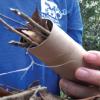
Discovery Time: Bugs
Source Institutions
In this activity, young learners (2 years and up) explore the world of insects and other "bugs" by Making a "bug hotel" with recycled objects.
Math and Creativity Posters
Source Institutions
These math posters have questions written on them, such as: How many colors can you name in a minute? or How many seconds can you balance on one foot?
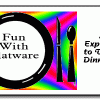
Fun with Flatware: Little Experiments to Try at the Dinner Table
Source Institutions
This is a series of three quick science activities to do with a spoon, knife, and fork. In the first two activities, learners use the flatware to explore optics, mirrors, reflection, and distortion.
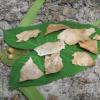
Discovery Time: Turtles
Source Institutions
In this activity, young learners (2 years and up) explore turtle basic adaptations and biology. Turtle external anatomy is explored by "building" a turtle with a nature collage.
Flesh Out a Fossil
Source Institutions
In this activity, learners discover how artists start with a skeleton and turn it into a realistic drawing of a dinosaur.
The Sharp Eyes of a Naturalist
Source Institutions
In this creative activity, learners will practice looking carefully to observe details and to become familiar with dioramas as a method for displaying naturalistic scenes.
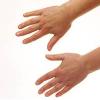
Go with the Flow
Source Institutions
In this activity, learners discover how hard their hearts work to pump blood.

Stethoscope
Source Institutions
Make a copy of the first stethoscope with only a cardboard tube! René Laennec invented the first stethoscope in 1819 using an actual paper tube!
Any Year Calendars
Source Institutions
This PDF contains 12 calendars (12 months). Each month contains activities about math. Things to do on familiar holidays (like July 4), less common holidays (like Backward Day), and any day.
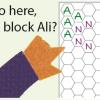
Touch and Go
Source Institutions
As learners play this game, they develop logic, geometry, and spatial visualization skills. Players start out with an empty hexagonal grid.
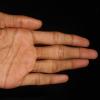
Head, Shoulder, Knees and Toes...and Hands, Fingers and Back
Source Institutions
Are fingers the only place on the body where we use our sense of touch? In this activity (6th activity on the page), learners test the touch sensitivity of different parts of the body.
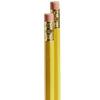
Depth Perception
Source Institutions
In this easy demonstration (3rd on the page), learners explore depth perception by conducting a test with two pencils.
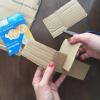
Cardboard Sculptures
Source Institutions
Learners explore the endless possibilities of cardboard engineering in this open-ended STEAM activity. Practice being creative by building structures with no glue, only cardboard and scissors.
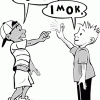
I M O K. U R O K.: You Can Make Sentences Without Words!
Source Institutions
Can you read the sentence "I C U"? Not really - but if you say each letter aloud, you'll say the simple sentence, "I see you." What if you change the "C" into a picture of an eye?

Family Fort Challenge
Source Institutions
In this activity, learners will explore engineering concepts to construct a blanket fort using materials sourced from home.

Home Water Audit
Source Institutions
This activity offers learners and their families several ways to raise their awareness together about home water.
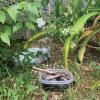
Build A Bee Bath
Source Institutions
In this activity, learners use found natural materials to create a water haven for bees and other insects.
Catch the Beat
Source Institutions
This is an activity about music, movement, and math. Learners will start a rhythm pattern with 2, 3, or 4 beats. For instance, tap your foot, jump, clap, repeat.

Guess My Rule
Source Institutions
In this math activity, learners play a game and try to be the first player to identify their partner's rule. Learners identify the rule by finding commonalities between three familiar objects.
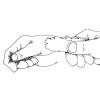
Squishy Soil
Source Institutions
In this activity, learners will investigate the part of soil. Explore how clay, silt, and sand make up the dirt in your background. Activity includes step-by-step instructions and extension ideas.
